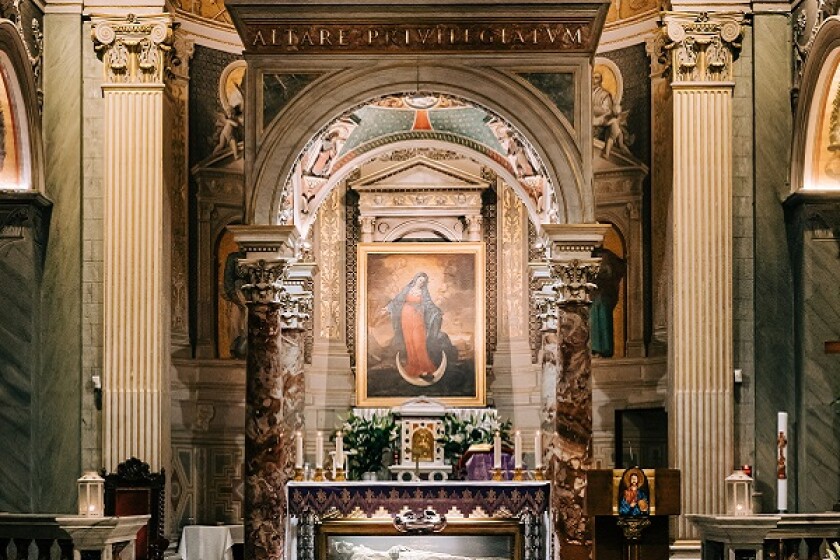Saint Vincent of Saragossa was a deacon of the Church of Saragossa. He was born at Huesca and martyred under the Emperor Diocletian around the year 304. He is considered divine by many people of various Christian beliefs. It is also the name of many geographical locations in several countries, including a valley in Italy, the St. Vincent community in Minnesota, and St. Vincent College in Gosport, England.
Notwithstanding, Alexander’s Vaults Co (Russia) filed and obtained registration No. 196200 ‘Saint Vincent’ for the goods in Classes 16, 33 and services in Classes 35, 39, 42. That registration existed for several years until another winery, ‘Wine Style’ filed an appeal against the registration. It argued that the registration contradicts public interests, the principle of humanity and morals as set forth in the Civil Code (Article 1483).
The appellant argued that Saint Vincent is a martyr who suffered for his beliefs. Marking alcoholic beverages with his name insults the feeling of the believers. According to the public poll, about 50% of respondents were insulted.
The appealed trademark elicits the idea of certain quality of the goods, their producer and place of production because it elicits associations with the patron of French wine growers. As a result of these associations, the appealed trademark has a stable association with France as the place of production of goods in Class 33, however, this is inconsistent with the truth because the company belonging to the trademark owner was incorporated by Coteur United Brands, an offshore company in Cyprus.
The appellant dealt yet another blow to the trademark: he stated that registration of a trademark reproducing the name of a saint martyr elicits false associations from the consumers.
The consumers will think that the goods are approved by the church and will be encouraged to buy them. According to the public poll conducted by the appellant more than 25% of the respondents believe that the church favours alcohol under such designation.
The interest of the appellant to cancel the trademark consists in that he imports alcoholic products including wines Vincent and Saint Vincent produced from red grapes of the ‘St Vincent’ variety. He also won the support of Archbishop Dmitry of Moscow Patriarchate who confirmed that labelling alcoholic beverages with the name of saints insults the feelings of the believers. The use of the name of a saint by a religious community or using his image cannot belong to a physical or legal person who has no connection to religion.
The trademark owner doubted the results of the public poll because the poll’s questions concerned the year 2000, while the poll was conducted in 2020, and according to him it is not possible to make an authentic evaluation of the situation after so much time.
The trademark owner also argued that the state register contains many trademarks featuring religious themes, such as ‘monk’, ‘Madonna’, and ‘monasterial traditions’. Wines produced in France under the disputed trademark are produced with permission of the trademark owner and are quite distinctive.
The trademark owner also provided documents galore showing various cases of use of the disputed designation or cases associated with it.
The appellant objected however arguing that religious organisations may freely use religious symbols associated with their religion but state registration of such symbols should not be allowed.
After bandying arguments back and forth, the balance was tipped in favour of the appellant. The Chamber of Patent Disputes agreed that the trademark dispute definitely concerns religious beliefs. The disputed trademark designating alcoholic beverages may insult the feelings of the believers. The name of a saint cannot be approp
riated by a physical or legal person. The trademark should be invalidated in full. Hence, Saint Vincent was relieved from restraints of IP.
Vladimir Biriulin
Partner, Gorodissky & Partners












